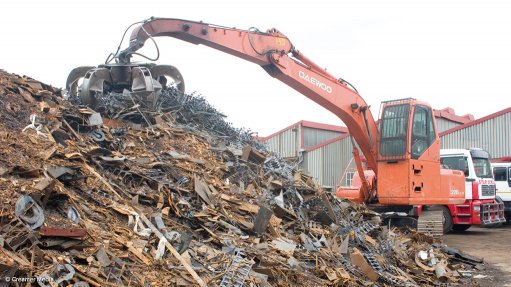Project envisions rollout of smart LPG, solar systems, hydrogen stoves to 3.51m indigent households

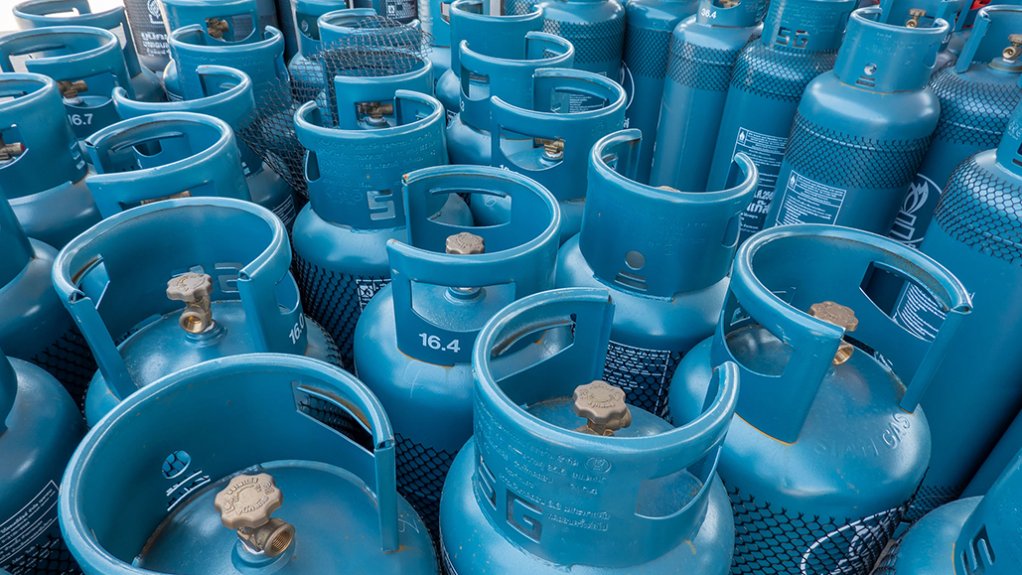
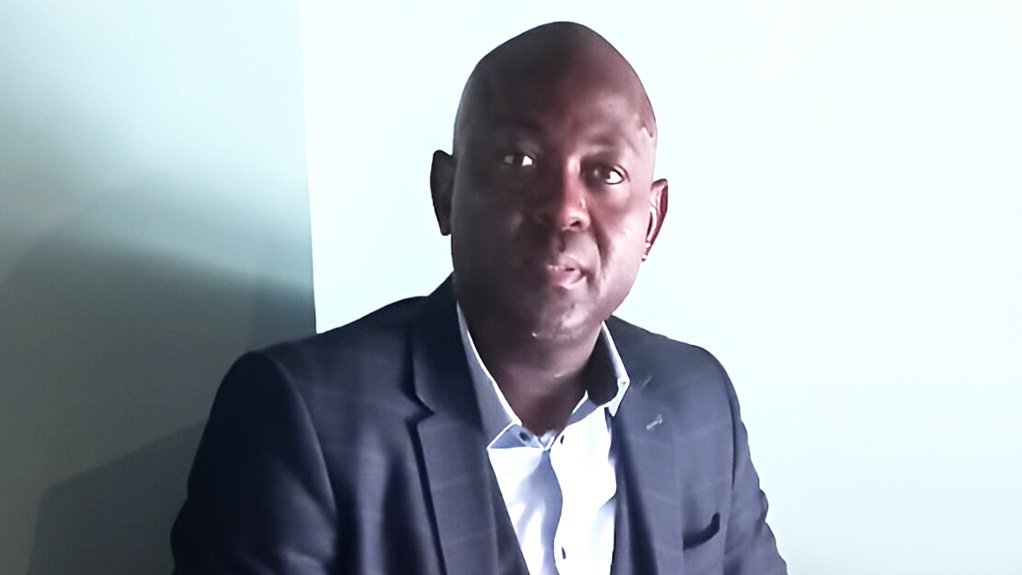
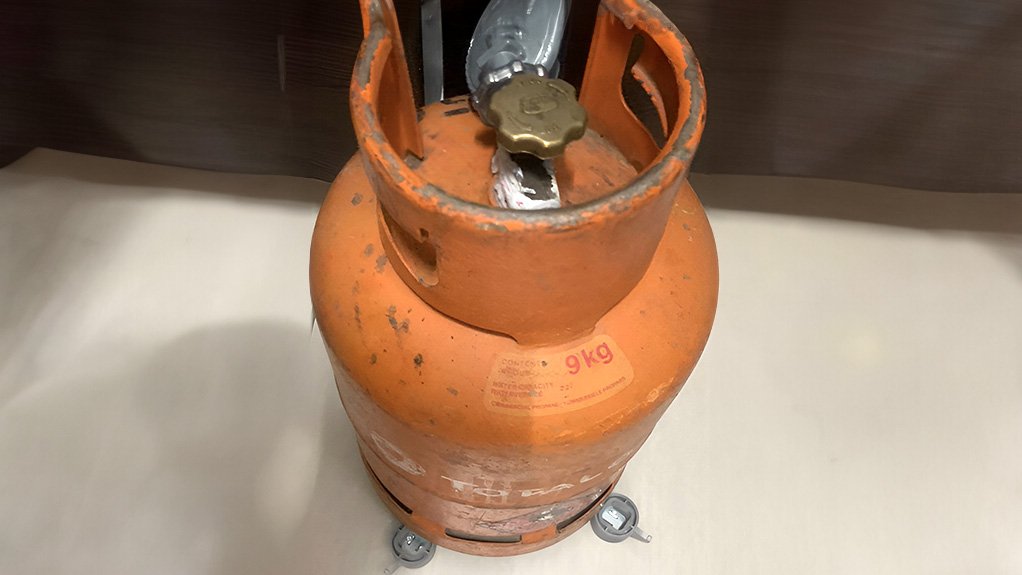
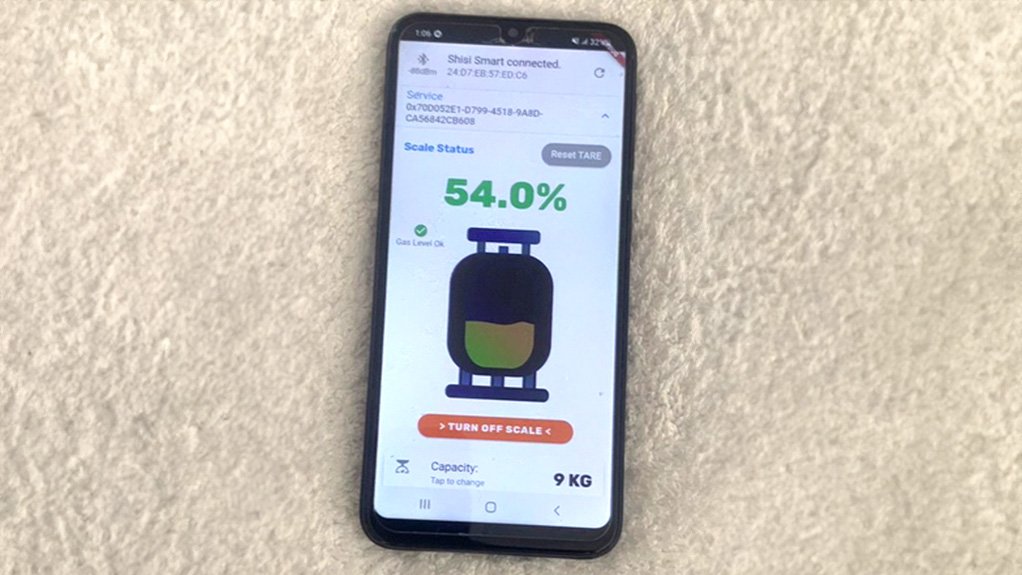
Kili Energy CEO and founder Mfanafuthi Dube
An LPG cylinder with a smart device attached, enabling location and use tracking capability
Users will be able to track their LPG use on their mobile devices
Energy solutions company Kili Energy is spearheading a large-scale initiative, the Kili Energy Clean Energy Democratisation Project, to provide smart liquefied petroleum gas (LPG) canisters and stoves, smart solar systems and novel hydrogen-powered stoves to 3.51-million indigent households in eThekwini, Tshwane, Cape Town, Johannesburg, the OR Tambo district municipality and Nelson Mandela Bay.
The aim of the project is to provide "energy liberation" for townships and other indigent households, while simultaneously contributing to the decarbonisation of the country’s electricity supply.
Kili Energy, as a project founder and lead, will be assisted by its partners, which include gas company Afrox, telecommunications company Vodacom, software company IoT.Nxt, black-female-owned company ThinkFast Group, and other black-owned companies ShisiGas and Vikinduku Engineering.
SMART LPG GAS SYSTEMS
“We have come up with a solution to democratise clean energy by rolling out, through subsidisation, smart LPG cylinders and two-plate gas cooker stoves, along with hosing and regulators, to drive the use of gas as an alternative source of cooking energy, which will alleviate the strain placed on the electricity grid and improve people’s lives,” Kili Energy CEO and founder Mfanafuthi Dube tells Engineering News.
He says that if only 30% of the indigent households in South Africa were to switch to using gas as an alternative cooking energy just for two hours during the evening peak, as much as 2 100 MWh of electricity will be saved on the grid.
Key to the project is that the gas cylinders will be fitted with smart technology – a first in South Africa. These cylinders will include weight sensors that can accurately display the amount of gas left inside, as well as location sensors that will allow each cylinder to be tracked remotely.
Dube explains that the plan is for the cylinders to be manufactured locally in a leased 13 000 m2 gigafactory in the Dube TradePort special economic zone in KwaZulu-Natal. The aim is to start building out the manufacturing capacity in 2026, with a view to manufacturing coming on stream by 2028.
The rollout will also incorporate the setting up of localised mini-factories for the refurbishment and repair of the cylinders once they are in circulation. These mini factories will form part of a township industrialisation endeavour in partnership with the Department of Trade, Industry and Competition (dtic) under its Township Industrialisation and Township Energy Hubs projects.
“We are designing our rollout processes in such a way that the smart cylinders will be manufactured locally creating jobs in engineering, and Fourth Industrial Revolution (4IR) and artificial intelligence (AI) technologies,” Dube says.
He explains that the last mile distribution to households will be undertaken by local small, medium-sized and microenterprises (SMMEs) which will use delivery vehicles financed by banks such as Ithala and the government-owned Small Enterprise Finance Agency.
Moreover, these SMMEs will be certified by the LPG Association of South Africa and other relevant local authorities to ensure safe operations.
“Thanks to our built-in smart technology, our gas cylinders will only be able to be refilled at our authorised bottlers. Automatic alerts will immediately be sent out should refilling by any unscrupulous dealers be detected,” Dube explains, adding that the tracking technology will also help prevent theft or other forms of tampering.
He notes that the smart LPG gas systems will only be available to those living in formally built structures, owing to the fire hazard it poses for shack dwellers living in informal settlements.
HYDROGEN STOVES
Dube tells Engineering News that Kili Energy is also aiming to manufacture hydrogen-powered stoves at the Dube TradePort gigafactory. The company is currently in negotiations with a US-based patent holder to secure the manufacturing rights for the devices, which should be settled by midyear.
These devices resemble a standard two-plate gas-heated stove, except that they house a miniaturised electrolyser inside to separate hydrogen atoms from water, thereby creating hydrogen gas on demand.
When powered by solar, the hydrogen stove allows users to cook their food safely using hydrogen gas and without any emissions, requiring only water as a fuel source.
The hydrogen stoves, along with solar panels, will be supplied to informal settlements so that shack dwellers can have a safe and efficient way to cook their meals without the fire hazard associated with paraffin burners.
Dube says these devices, if manufactured locally, would retail at about R1 500 each. However, he believes this cost can be lowered considerably once manufacturing economies of scale are achieved.
SMART SOLAR POWER
The third aspect of the project will entail the rollout of smart offgrid solar systems and microgrids, which can supply sufficient power to run appliances such as fridges, televisions, computers and the hydrogen stoves.
These smart solar panels and the accompanying energy storage systems will also be manufactured locally at the Dube TradePort factory, in partnership with South Korean technology partners and US financiers.
“To ensure community-based sustainable jobs are created, we intend to absorb the women, disabled and youth into our programme, starting with those that will be trained in government-led solar training initiatives such as Nasi Ispani in Gauteng and the 6 000 youths in the eThekwini municipality that will gain on-the-job training alongside our international experts,” Dube explains.
He says local technical and vocational education and training colleges will be providers of skilled women, disabled persons and youth to work as welders and customer service operators, as well as technology.
The smart solar systems will also incorporate 4IR and AI technology to allow for remote monitoring and tracking to ensure proper operation and prevent tampering and theft.
LEVERAGING 4IR TECHNOLOGY
The 4IR- and AI-enabled solar panels and LPG cylinders will collate intelligent data points for each household through integration with a Vodacom cloud-based system.
This system and the information it provides will be leveraged to track the carbon emissions savings accrued by the project at large, allowing Kili Energy to access the JSE Carbon Ventures Market to trade carbon credits and international renewable energy credits to offset costs.
Some of the funds garnered through this process will be invested back into communities for their development through community trusts. This will be done in partnership with the dtic, companies with similar interests in township industrialisation and decarbonisation efforts such as black-owned Ntiyiso Consulting, and the Human Sciences Research Council.
Dube says the South African Chamber of Commerce and Industry has also voiced its full support as a business chamber and will lobby its members, where necessary, to ensure the project succeeds.
“This will enable the marginalised to participate in the economy of this country while playing their part in the fight against climate change. It will also assist municipalities to streamline their balance sheets and possibly generate new revenue streams,” he adds.
He notes the potential for other related projects, such as the eThekwini Social Energy Infrastructure Programme initiative, which aims to roll out solar power in schools and clinics in its communities, to also join hands with Kili Energy should the authorities give the green light.
JOB CREATION
Overall, the project is intended to create more than 30 000 jobs nationally over ten years, with a view to transforming township economies from being consumption-based to production-driven.
“The multiplier effect is immense for a unique and innovative project like this,” Dube says, noting that many more jobs could arise indirectly as well over time.
The smart gas cylinders, smart solar panels, energy storage systems and hydrogen stoves will all be manufactured locally at the Dube TradePort gigafactory to satisfy local demand but will also eventually supply the technology into other African countries, leveraging the African Continental Free Trade Area to drive local industrialisation and create sustainable jobs.
A professional global consulting firm has agreed to undertake a feasibility study, which will assist in unlocking $300-million in funding from JSE private placements and US financier Global Trade & Finance (GT Finance) to fund the rollout to the first 150 000 indigent households. This leading global consulting firm will also provide critical support in other project development areas.
A business delegation from the US and South Korea led by GT Finance is scheduled to visit South Africa in May for further discussions.
“We hope to have meetings with the national, provincial and municipal government officials soon, as we have already engaged the Presidency, the Electricity Ministry and the eThekwini metro, asking for support for this self-funded initiative,” Dube says.
Comments
Press Office
Announcements
What's On
Subscribe to improve your user experience...
Option 1 (equivalent of R125 a month):
Receive a weekly copy of Creamer Media's Engineering News & Mining Weekly magazine
(print copy for those in South Africa and e-magazine for those outside of South Africa)
Receive daily email newsletters
Access to full search results
Access archive of magazine back copies
Access to Projects in Progress
Access to ONE Research Report of your choice in PDF format
Option 2 (equivalent of R375 a month):
All benefits from Option 1
PLUS
Access to Creamer Media's Research Channel Africa for ALL Research Reports, in PDF format, on various industrial and mining sectors
including Electricity; Water; Energy Transition; Hydrogen; Roads, Rail and Ports; Coal; Gold; Platinum; Battery Metals; etc.
Already a subscriber?
Forgotten your password?
Receive weekly copy of Creamer Media's Engineering News & Mining Weekly magazine (print copy for those in South Africa and e-magazine for those outside of South Africa)
➕
Recieve daily email newsletters
➕
Access to full search results
➕
Access archive of magazine back copies
➕
Access to Projects in Progress
➕
Access to ONE Research Report of your choice in PDF format
RESEARCH CHANNEL AFRICA
R4500 (equivalent of R375 a month)
SUBSCRIBEAll benefits from Option 1
➕
Access to Creamer Media's Research Channel Africa for ALL Research Reports on various industrial and mining sectors, in PDF format, including on:
Electricity
➕
Water
➕
Energy Transition
➕
Hydrogen
➕
Roads, Rail and Ports
➕
Coal
➕
Gold
➕
Platinum
➕
Battery Metals
➕
etc.
Receive all benefits from Option 1 or Option 2 delivered to numerous people at your company
➕
Multiple User names and Passwords for simultaneous log-ins
➕
Intranet integration access to all in your organisation














